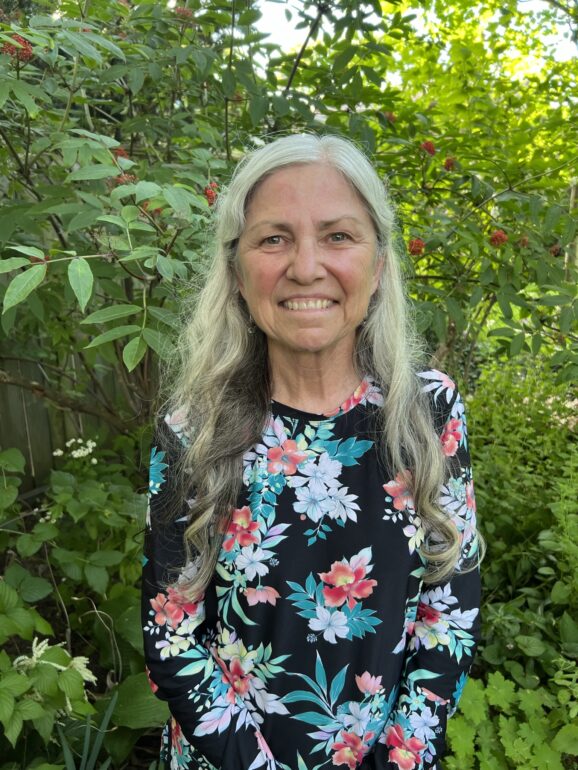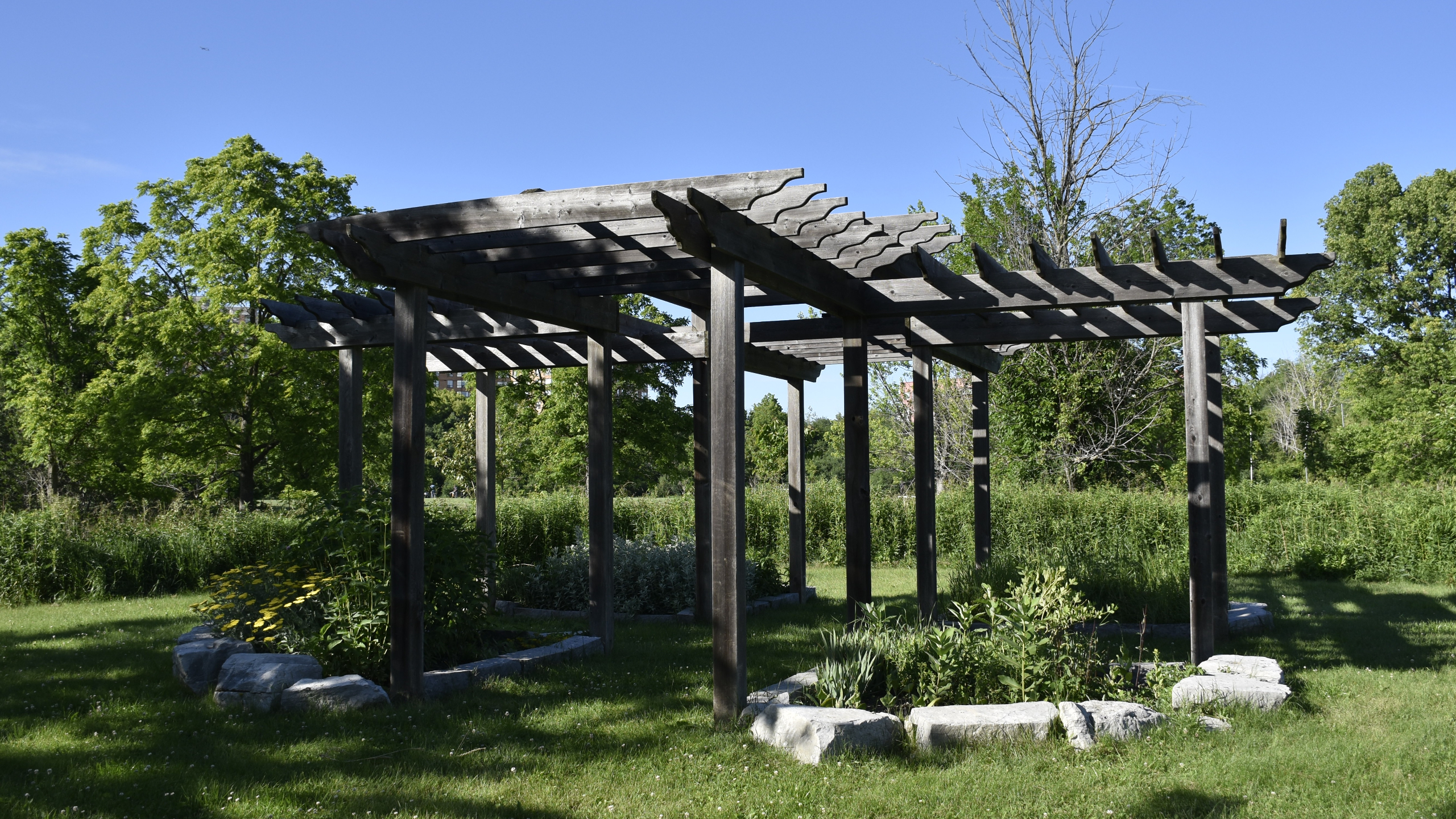The Humber North campus medicine garden’s opening event featured a conversation on Indigenous medicines and the announcement of the college’s latest initiative on Indigenous education on Thursday.
The medicine garden, located at the Humber Arboretum, is now open to Humber’s Indigenous students and staff.
Quazance Boissoneau, manager of the Indigenous Education and Engagement (IEE), said the garden gives Humber’s Indigenous community, especially newcomers to Toronto, direct access to traditional medicine.
Boissoneau who was originally from the Robinson Huron Treaty region in Northwestern Ontario, said she used to have direct access to traditional medicine in her homeland, but moving to Toronto made accessing medicines difficult.
“Like many other students here at Humber, I moved to Toronto for different and new opportunities,” she said. “And when I came to the city, I came to these lands without knowledge of the local resources or the traditional medicines.
“But now with our medicine garden opening, students and employees and staff will now have access and know exactly where to go when they come to Toronto,” Boissoneau said.
Lynn Short, an environmental stewardship coordinator at the Humber Arboretum, said the medicine garden was originally built in 2011 but was not publicized until now.
Short, who had been caring for the garden, said she harvested tobacco and sage for usage in the Indigenous office.
The garden is now growing the four sacred medicines, tobacco, sage, white cedar and sweetgrass.
“For Indigenous Peoples, we have a different attitude towards the plants and the animals,” Short said.
She said plants, animals and humans are all children of Mother Earth and everything has a spirit.
“In Western society, they’re all things, but for Indigenous Peoples, they’re all our relatives,” Short said.
“I think that’s the purpose of the medicine garden, to let the Indigenous students still feel that connection to the land by going to a place where those things that are familiar are present on the land,” she said.
Lynn Short, staff at the Humber Arboretum has been caring for the medicine garden and harvesting traditional medicines. Photo credit: Courtesy, Lynn Short
The IEE office decided to publicize Humber’s medicine garden together with the announcement of the college’s latest initiative on Indigenous education.
Lisa Salem-Wiseman, Humber Associate Dean in the Faculty of Health and Wellness, announced during the event the college is redesigning the Humber Learning Outcome (HLO) framework by adding the fourth learning mindset called Indigenous ways of being, knowing and doing.
Salem-Wiseman said the new mindset acts in concert with equity, diversity and inclusion, sustainability and systems thinking, which together are the key values the college hopes to nurture in the Humber community.
She said the mindset of Indigenous ways of being, knowing and doing is grounded in three pillars.
“Mino nawendiwin is the first pillar, good relations, (second pillar) truth and reconciliation, and the third, which is particularly appropriate to today’s presentation, land as first teacher,” Salem-Wiseman said.
Robin Wall Kimmerer, an American scientist and enrolled member of the Citizen Potawatomi Nation, was the guest speaker of the event.
Kimmerer said for Indigenous Peoples, plants are understood as persons, relatives and their oldest teachers.
“They have such depth of knowledge, such creativity uniting the earth and the sky and the sun,” she said.
“And so we give honour to these oldest teachers, and the garden that you are creating is a space to honour them,” Kimmerer said.

